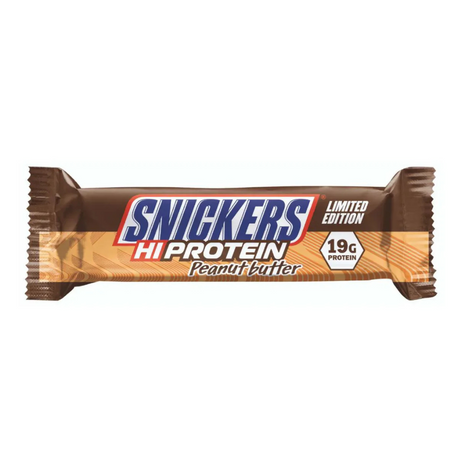February 28, 2025 | by FUEL SUPPLEMENTS
In sports, pushing your body is very important. To do this well, knowing about nutrition is crucial. Carbohydrates play a big role as they are athletes' main energy source. They help give energy during tough workouts and help muscles recover afterward. This blog post will discuss why carbohydrates matter for athletes. We will look at different types of carbohydrates, their effects, and how athletes can take in the right amount for the best performance.
The Role of Carbohydrates in Athletic Performance
Carbohydrates are very important for athletes. They give the body the energy needed for workouts and competitions. When we eat carbohydrates, our body turns them into glucose, which is a type of sugar. This sugar is the main fuel for our muscles. Getting enough carbohydrates helps athletes have energy ready to use. This keeps them from feeling tired and helps them perform at their best.
Energy Production from Carbohydrates
Carbohydrates are the main source of energy for our body’s cells, especially during physical activity. When we eat carbohydrates, our digestive system breaks them down into glucose. Glucose is a simple sugar that enters the bloodstream. When blood sugar rises, it triggers the release of insulin, which helps move glucose into the body's cells.
Inside the cells, glucose changes into adenosine triphosphate (ATP). ATP is the body’s primary source of energy. It powers muscle actions, nerve signals, and all other cellular tasks. Our bodies have trouble making enough ATP if we don’t eat enough carbohydrates. This can cause fatigue, lower performance, and longer recovery times after exercise.
Carbohydrates and Muscle Recovery
Carbohydrates do more than help improve our performance. They are also important for muscle recovery after hard exercise. When we work out, our muscles use up glycogen, the stored form of sugar. Eating carbohydrates after exercising helps refill these glycogen stores, which is key for fixing and building muscles.
Carbohydrates also help send essential nutrients, like protein, to our muscles, which boosts recovery. Plus, some carbs, especially those high in dietary fiber, help keep our gut healthy. A healthy gut is great for absorbing nutrients and feeling good, which is vital for athletes.
Types of Carbohydrates and Their Effects
Not all carbohydrates are the same for athletes. It's important to know the difference between simple and complex carbohydrates. Athletes can improve their nutrition by picking the right carbohydrates at the right times. This helps them boost their energy, support recovery, and enhance their overall performance.
Understanding Simple vs Complex Carbohydrates
Simple carbohydrates, also called simple sugars, are short chains of sugar molecules. You can find them in foods like fruits, milk, and processed snacks. Because they are simple, they get into the bloodstream quickly. This gives you a fast boost of energy.
Complex carbohydrates have long chains of sugar molecules. You can find them in whole grains, legumes, and vegetables. The digestive system breaks them down slowly. This means they provide a steady and long-lasting source of energy.
Simple carbohydrates are great for a quick energy boost before or during a workout.
Complex carbohydrates are perfect for long-lasting energy, especially during extended activities and for restoring glycogen after exercise.
The Importance of Glycemic Index for Athletes
The glycemic index (GI) measures how quickly a carbohydrate-containing food raises blood sugar levels. Foods with a high GI are quickly digested and cause rapid spikes in blood sugar, while low-GI foods are digested more slowly and lead to more gradual increases in blood sugar.
For athletes, understanding the GI of different carbohydrates can be a valuable tool for managing energy levels and performance. Low-GI carbohydrates are generally a better option for pre-workout meals or snacks, as they provide sustained energy release. High-GI carbohydrates can be beneficial during or immediately after a workout to quickly replenish glycogen stores.

Timing Your Carbohydrate Intake for Optimal Performance
To improve your athletic performance, it’s important to think about both the amount of carbohydrates you eat and the timing of when you eat them. If you plan when you take in carbohydrates, you can make sure your body gets the energy it needs at the right times.
Pre-Workout Carbohydrate Strategies
Eating carbohydrates before a workout helps refill muscle glycogen stores. This gives you the energy needed for your best performance. The best pre-workout meal or snack should have many complex carbohydrates and a balanced amount of protein and fat.
Try to eat a complete meal with complex carbohydrates 2 to 3 hours before your workout. If you are short on time, a smaller snack that combines simple and complex carbohydrates about 30 to 60 minutes before exercising can help you.
When choosing the glycemic load of your pre-workout meal, consider how hard and long your workout will be. A meal with a lower glycemic load for longer or harder sessions will give you more steady energy.
Post-Workout Carbohydrate Recovery
After a workout, you need to replace muscle glycogen and help with muscle recovery. Eating carbohydrates within the first 2 hours after exercise is very important. During this time, muscle cells can easily take in glycogen.
A good post-workout meal or snack should have both carbohydrates and protein. The best ratio is about 3:1 or 4:1, meaning more carbs than protein. This mix helps bring glucose back into muscle cells and starts the repair and growth of muscles.
Choose carbohydrates and proteins that are easy to digest. This will help your body absorb nutrients better and avoid any stomach issues.
In conclusion, carbohydrates are very important for improving athletic performance. They provide energy and help muscles recover. Athletes need to know about different types of carbohydrates and the glycemic index. This knowledge helps them time their food intake better. Using pre-workout and post-workout carbohydrate strategies can affect how well they perform. It's important for athletes to adjust their carbohydrate intake to fit their needs. By focusing on carbohydrates, athletes can boost their endurance and overall performance. To improve your athletic performance, have a balanced carbohydrate intake that matches your training goals and schedule.

Frequently Asked Questions
What is the best type of carbohydrate for athletes?
The best type of carbohydrate for athletes can change based on personal needs and when they eat. It’s important to eat a mix of nutritious foods that are high in complex carbohydrates. Good choices include whole grains, fruits, vegetables, and legumes. These foods can help create energy, improve athletic performance, and offer overall health benefits.
How many carbohydrates should an athlete consume daily?
Athletes have different daily needs for carbohydrates. These needs depend on body weight, how hard they train, and the length of their workouts. Most experts suggest that athletes should get 45-65% of their daily calories from carbohydrates. This helps provide enough energy for their activities and performance.
Can low-carb diets be beneficial for athletes?
Low-carb diets, such as the keto diet, are popular, but they can harm athletic performance. They reduce muscle glycogen, making it harder to do well and raising the chance of tiredness and muscle loss. Not eating enough carbs can also hurt an athlete's recovery.
How do carbohydrates affect hydration levels during exercise?
Carbohydrates help keep you hydrated when you exercise. When you eat carbohydrates, they draw water into your muscle cells, helping with hydration. Eating carbohydrates during exercise, especially with electrolytes, also helps maintain your electrolyte balance and blood sugar levels.










